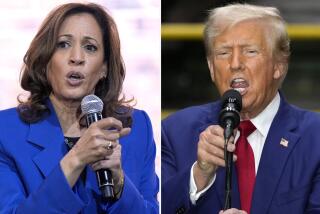Netflix takes Disney pay-TV rights from Starz
Netflix has acquired the exclusive U.S. rights to movies from Walt Disney Studios films, beginning in 2016, in a three-year deal that catapults the Internet video-on-demand service into direct competition with pay-TV giants such as HBO and Showtime.
The news is a blow to the pay channel Starz, which previously had the rights to Disney movies, including its Pixar animated films and Marvel superhero pictures.
Disney has also agreed to immediately give Netflix non-exclusive streaming rights to more of its older library titles including “Dumbo,” “Pocahontas” and “Alice in Wonderland.”
Starz’s sole remaining movie provider is now Sony Pictures. That agreement ends in 2016.
Netflix Chief Executive Reed Hastings and chief content officer Ted Sarandos have long said they wanted to get pay-TV rights to films from one of Hollywood’s six major studios to boost their company’s online entertainment service. Currently, it has recent movies only from independent studios such as Relativity Media and FilmDistrict, as well as pictures more than a decade old from every studio, and a wide variety of television reruns.
In a statement, Sarandos called the deal a “a bold leap forward for Internet television and we are incredibly pleased and proud this iconic family brand is teaming with Netflix to make it happen.”
Disney movies will become available to stream from Netflix seven to nine months after they are first shown in theaters. A Netflix spokesman said that time frame is “accelerated” compared with when Starz currently gets new releases.
Although terms were not disclosed, a person close to the matter said Netflix could ultimately pay more than $300 million annually for Disney movies.
Earlier this year, HBO cut a deal with 20th Century Fox for its movies, at an estimated price of more than $200 million annually.
In so-called output deals, pay-TV providers typically pay between 10% and 12% of the U.S. box office of each film up to $200 million.
For Starz, losing the Disney movies means the channel will have to create more original content to fill the void. The network has had a mixed track record with its original shows. It succeeded with the gladiator show “Spartacus,” but recently canceled “Boss,” an ambitious drama starring Kelsey Grammer as a corrupt mayor of Chicago.
“Starz will continue to be the exclusive home of all Disney movies, including the Lucasfilm, Marvel and Pixar releases, and their accompanying digital streaming rights, into 2017,” the company said in a statement. “Our decision not to extend the agreement for Disney output past that time allows us the opportunity to implement our plan to dramatically ramp up our investment in exclusive, premium-quality original series which will best meet the needs of our distributors and subscribers.”
Previously a DVD-by-mail company that started offering streaming movies and TV shows on computers, Netflix has begun to be a direct competitor to cable channels as more and more people are accessing its video-on-demand content through Internet-connected televisions.
It previously offered movies from Disney and Sony under an agreement with Starz, but that deal ended early this year after the two companies couldn’t agree on renewal terms.
The ending of that agreement accelerated a trend that has seen Netflix evolve into a television company, with reruns accounting for more than 60% of the content streamed by users.
The addition of recently released Disney films should slow down that trend and make Netflix more closely resemble premium television networks such as HBO.
In addition, like virtually every cable channel, Netflix has begun moving into original programming. New series such as the Kevin Spacey political drama “House of Cards” and original episodes of the cult comedy “Arrested Development” are to launch in 2013.
Netflix stock skyrocketed on the news, trading up 15% at $87.59 Tuesday afternoon.
Times staff writer Meg James contributed to this report.
ALSO:
Netflix less about flicks, more about TV
Netflix’s third quarter earnings tumble amid global expansion
Netflix offered $300 million-plus, but Starz wanted higher rates
More to Read
From the Oscars to the Emmys.
Get the Envelope newsletter for exclusive awards season coverage, behind-the-scenes stories from the Envelope podcast and columnist Glenn Whipp’s must-read analysis.
You may occasionally receive promotional content from the Los Angeles Times.









